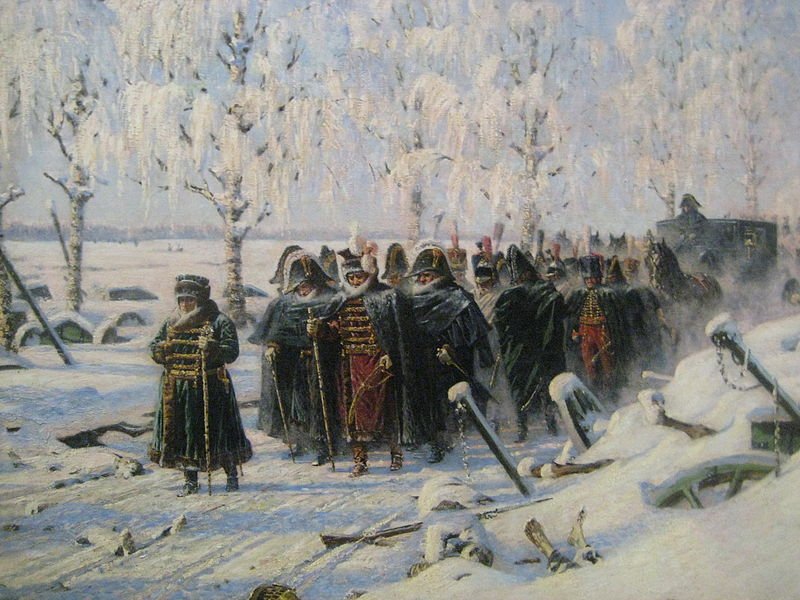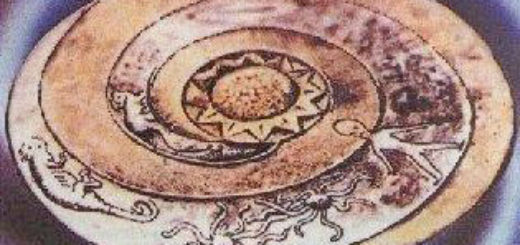Why Napoleon’s Invasion Of Russia Was A Fiasco
Considered by many historians to be one of the greatest military leaders of all time, Napoleon Bonaparte (1769-1821) conquered most of Europe with an array of insightful tactics.
There is no doubt that his military expansion changed the world, but Napoleon’s invasion of Russia in 1812 was a military fiasco and the beginning of the Emperor’s ending carrier.

But why was Napoleon’s invasion of Russia a disaster? Was Napoleon too overconfident or was it perhaps because Russians came up with a cunning plan?
In 1812, most of continental Europe was already under Napoleon’s control. Why Napoleon decided to invade Russia has been debated among historians. The official version is that Napoleon wanted to protect Poland from its enemy in the East, namely Russia.
The Poles under Marshal Joseph Poniatowski, unlike the Russians, gave great support to Napoleon in 1809. Poland had been first weakened and then destroyed after its territories were partitioned by Austria, Prussia and Russia in 1772, 1793 and 1796.
However, many historians have reason to believe Napoleon had other more selfish motives to send a huge army straight to Moscow. There was an ongoing conflict between France and Great Britain that led to total war.
Napoleon set up the Continental System, an embargo on all foreign trade in an effort to weaken the British economy. The decrees of Berlin (November 21, 1806) and Milan (December 17, 1807) proclaimed a blockade: neutrals and French allies were not to trade with the British.
But Napoleon realized that extensive trade was still going through Spain and Russia, he invaded those two countries.
Napoleon wanted to isolate Britain and the invasion of Russia was an attempt to force Tsar Alexander I to submit once again to the terms of a treaty that Napoleon had imposed upon him four years earlier.
Napoleon gathered 680,000 soldiers, from France as well as all of the vassal states of Europe. He entered Russia at the head of the largest army ever seen. His forces managed to reach Moscow and the Russians, under Marshal Kutuzov, could not realistically hope to defeat him in a direct confrontation. The Russians had to come up a cunning plan quickly before it was too late – and so they did.
Not only did the Tsar and all inhabitants escape and deserted the city before the arrival of Napoleon’s army, but they also made sure there were no great stores of food or supplies to reward the French soldiers for their long march. Then, just after midnight, fires broke out across the city, apparently set by Russian patriots, leaving Napoleon’s massive army with no means to survive the coming Russian winter.
Napoleon’s men were shocked. They were hungry, had no shelter and winter was approaching. Napoleon ordered his troops to begin the march home. Having waited until mid-October to depart, the exhausted French army soon found itself in the midst of a very cold winter.
Temperatures soon dropped well below freezing, Cossacks attacked stragglers and isolated units, food was almost non-existent, and the march was five hundred miles.
Only 110,000 out of 680,000 soldiers survived. This was the beginning of Napoleon’s downfall and the rise of Russia’s status as a leading power in post-Napoleonic Europe.



 Creators of mankind
Creators of mankind Description of “Tall white aliens”
Description of “Tall white aliens” Where they came from?
Where they came from? About hostile civilizations
About hostile civilizations The war for the Earth
The war for the Earth “Tall white aliens” about eternal life
“Tall white aliens” about eternal life Video: “Nordic aliens”
Video: “Nordic aliens” Aliens
Aliens Alien encounters
Alien encounters The aliens base
The aliens base UFO
UFO Technology UFO
Technology UFO Underground civilization
Underground civilization Ancient alien artifacts
Ancient alien artifacts Military and UFO
Military and UFO Mysteries and hypotheses
Mysteries and hypotheses Scientific facts
Scientific facts


















